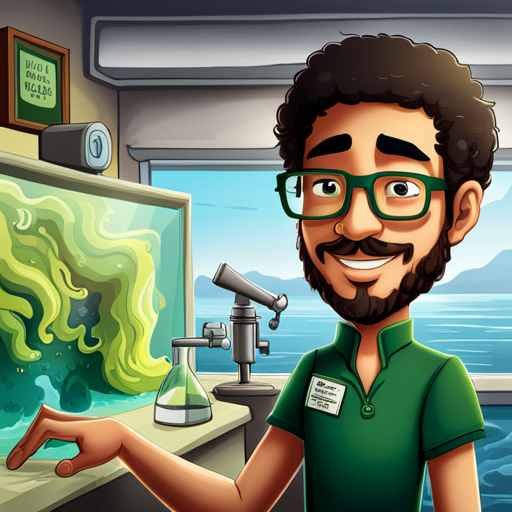As the world grapples with the challenges posed by climate change and the increasing demand for energy, innovative solutions are being sought to address these issues. One such solution is the use of algae for carbon capture and sequestration, as well as biofuel production. Algae are a diverse group of photosynthetic organisms that are capable of converting sunlight and carbon dioxide (CO2) into biomass, which can be used for various applications, including biofuel production. In this article, we will delve into the process of photosynthesis and CO2 fixation in algae, the environmental benefits of algae biofuel production, and the potential for algae to play a significant role in addressing climate change.
Photosynthesis is a biological process that occurs in plants, algae, and some bacteria. It involves the conversion of light energy into chemical energy in the form of glucose or other organic molecules. During this process, CO2 is absorbed from the atmosphere and combined with water to produce glucose, which is then used as an energy source for growth and reproduction. The byproduct of this reaction is oxygen, which is released back into the atmosphere. This process plays a vital role in removing CO2 from the atmosphere, thus helping to mitigate climate change.
Algae have several advantages over terrestrial plants when it comes to photosynthesis and CO2 fixation. Firstly, they have a higher growth rate than most land plants, allowing them to capture more CO2 per unit area. Secondly, algae do not require arable land for cultivation, making them an attractive option for carbon sequestration without competing with food production. Thirdly, many species of algae are capable of growing in brackish or saline water, further reducing competition for freshwater resources.
The use of algae for carbon capture and sequestration has garnered significant interest in recent years due to its potential to mitigate climate change. Algae-based systems can be integrated with industrial processes that emit large amounts of CO2, such as power plants and cement factories. By directing the CO2 emissions into algae cultivation systems, the CO2 can be absorbed and fixed by the algae, reducing the overall greenhouse gas emissions. Additionally, the biomass produced by the algae can be used for various applications, including biofuel production.
The environmental benefits of algae biofuel production are numerous. Algae-derived biofuels have a lower carbon footprint than fossil fuels, as they recycle CO2 from the atmosphere during their growth. This means that when algae biofuels are burned, they release less net CO2 into the atmosphere compared to fossil fuels. Moreover, algae biofuels are considered to be more sustainable than other biofuels derived from terrestrial plants, as they do not compete with food production or require large amounts of freshwater resources.
In addition to their potential for carbon capture and sequestration, algae can also be used to produce a variety of valuable bioproducts, such as proteins, lipids, and carbohydrates. These bioproducts can be used in various industries, including food, pharmaceuticals, cosmetics, and fertilizers. The extraction of these valuable compounds from algae can further contribute to the economic viability of algae-based systems.
In conclusion, algae hold great promise for addressing some of the most pressing global challenges related to climate change and energy demand. Through photosynthesis and CO2 fixation, algae can play a significant role in carbon capture and sequestration efforts. Moreover, the environmental benefits of algae biofuel production make them an attractive option for sustainable energy solutions. As research and development in this area continue to advance, it is likely that we will see an increased role for algae in mitigating climate change and providing sustainable energy sources for future generations.


